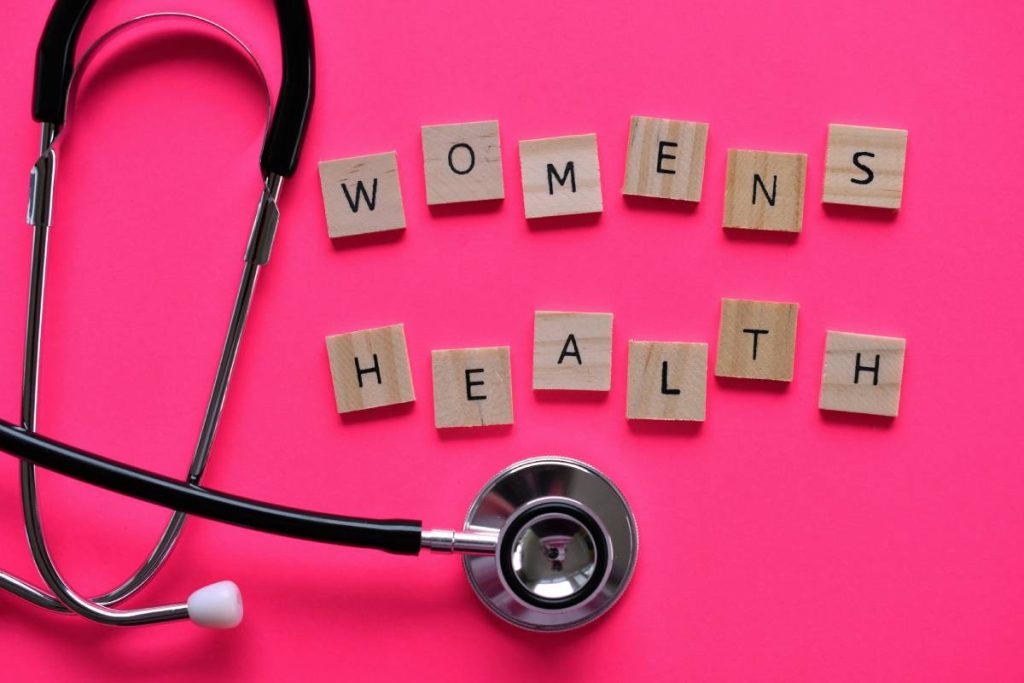Women’s health, synonymous with women’s well-being, encapsulates the physical, mental, and social dimensions of females’ overall condition. It involves recognizing and addressing their unique health needs, emphasizing a holistic approach to healthcare across the lifespan.

What is the meaning of women’s health?
Women’s health refers to the overall well-being of females, encompassing physical, mental, and social aspects. It involves understanding and addressing the unique health needs and challenges that women may encounter throughout their lives.
Physically, women’s health involves reproductive health, which includes aspects like menstruation, pregnancy, and menopause. Regular check-ups and screenings, such as mammograms and Pap smears, play a crucial role in detecting and preventing potential health issues.
Mentally, women’s health encompasses emotional and psychological well-being. This includes managing stress, anxiety, and depression, as well as addressing issues related to body image and self-esteem. Mental health is interconnected with physical health, emphasizing the importance of a holistic approach to well-being.
Socially, women’s health considers the impact of societal factors on their health. This involves addressing issues like gender-based violence, unequal access to healthcare, and workplace challenges. Promoting social support networks and ensuring equal opportunities contribute to overall women’s health.
Maintaining a healthy lifestyle is pivotal for women’s well-being. This involves a balanced diet, regular exercise, and sufficient sleep. These lifestyle choices positively impact physical and mental health, reducing the risk of various conditions.
Access to healthcare is a crucial aspect of women’s health. Timely and affordable healthcare services, including reproductive health services, are essential for maintaining overall well-being. Regular health check-ups and screenings aid in the early detection and management of potential health issues.
Education and awareness are key components of women’s health. Providing information about reproductive health, contraception, and healthy lifestyle choices empowers women to make informed decisions about their well-being. Knowledgeable choices contribute to better health outcomes.
Preventive care plays a significant role in women’s health. Vaccinations, screenings, and early intervention contribute to preventing or managing health issues before they become more severe. Prioritizing preventive measures is a proactive approach to maintaining good health.
Challenges to women’s health may arise due to various factors, including socioeconomic status, cultural beliefs, and geographical location. Addressing these disparities requires a comprehensive and inclusive approach to healthcare, ensuring that all women have equal opportunities to access and receive quality health services.
In conclusion, women’s health encompasses physical, mental, and social well-being, recognizing the unique challenges and needs women face. Prioritizing preventive care, promoting healthy lifestyles, and addressing societal factors contribute to an overall improvement in women’s health. Empowering women with knowledge and ensuring equal access to healthcare services are essential steps toward enhancing women’s well-being.

Why is it important to focus on women’s health?
Prioritizing women’s health is crucial for several reasons. Firstly, women’s health encompasses physical, mental, and social well-being, addressing unique challenges they face throughout life. Recognizing and understanding these aspects contribute to a holistic approach to healthcare.
Physically, women’s health involves reproductive aspects like menstruation, pregnancy, and menopause. Regular screenings, such as mammograms and Pap smears, play a vital role in early detection and prevention of potential health issues.
Mentally, women’s health includes emotional well-being, managing stress, anxiety, and addressing issues related to body image and self-esteem. The interconnected nature of mental and physical health underscores the importance of a comprehensive well-being approach.
Socially, women’s health considers the impact of societal factors, including gender-based violence, unequal access to healthcare, and workplace challenges. Promoting social support networks and ensuring equal opportunities contribute to overall women’s health.
Maintaining a healthy lifestyle is pivotal for women’s well-being, involving a balanced diet, regular exercise, and sufficient sleep. These lifestyle choices positively impact physical and mental health, reducing the risk of various conditions.
Access to healthcare is essential. Timely and affordable healthcare services, including reproductive health services, are critical for overall well-being. Regular health check-ups and screenings aid in the early detection and management of potential health issues.
Education and awareness are key. Providing information about reproductive health, contraception, and healthy lifestyle choices empowers women to make informed decisions. Knowledgeable choices contribute to better health outcomes.
Preventive care plays a significant role. Vaccinations, screenings, and early intervention help prevent or manage health issues
before they become severe. Prioritizing preventive measures is a proactive approach to maintaining good health.
Challenges to women’s health may arise due to various factors, including socioeconomic status, cultural beliefs, and geographical location. Addressing these disparities requires a comprehensive and inclusive approach to healthcare, ensuring that all women have equal opportunities to access quality health services.
In conclusion, focusing on women’s health is crucial due to the holistic nature of well-being. Recognizing and addressing physical, mental, and social aspects, promoting healthy lifestyles, ensuring access to healthcare, and addressing disparities contribute to an overall improvement in women’s health. Empowering women with knowledge and equal healthcare opportunities are essential steps toward enhancing women’s well-being.

What is another name for women’s health?
Women’s health, also known as women’s well-being, encompasses physical, mental, and social aspects of females’ overall condition. It involves understanding and addressing their unique health needs and challenges across the lifespan.
Physically, women’s health includes reproductive aspects like menstruation, pregnancy, and menopause. Regular screenings, such as mammograms and Pap smears, are crucial for early detection and prevention of potential health issues.
Mentally, women’s health involves emotional well-being, managing stress, anxiety, and addressing issues related to body image and self-esteem. The interconnected nature of mental and physical health underscores the importance of a comprehensive well-being approach.
Socially, women’s health considers the impact of societal factors, including gender-based violence, unequal access to healthcare, and workplace challenges. Promoting social support networks and ensuring equal opportunities contribute to overall women’s health.
Maintaining a healthy lifestyle is pivotal for women’s well-being, involving a balanced diet, regular exercise, and sufficient sleep. These lifestyle choices positively impact physical and mental health, reducing the risk of various conditions.
Access to healthcare is essential. Timely and affordable healthcare services, including reproductive health services, are critical for overall well-being. Regular health check-ups and screenings aid in the early detection and management of potential health issues.
Education and awareness are key. Providing information about reproductive health, contraception, and healthy lifestyle choices empowers women to make informed decisions. Knowledgeable choices contribute to better health outcomes.
Preventive care plays a significant role. Vaccinations, screenings, and early intervention help prevent or manage health issues before they become severe. Prioritizing preventive measures is a proactive approach to maintaining good health.
Challenges to women’s health may arise due to various factors, including socioeconomic status, cultural beliefs, and geographical location. Addressing these disparities requires a comprehensive and inclusive approach to healthcare, ensuring that all women have equal opportunities to access quality health services.
In conclusion, women’s health, synonymous with women’s well-being, is a comprehensive term covering physical, mental, and social aspects. Recognizing and addressing these dimensions, promoting healthy lifestyles, ensuring healthcare access, and addressing disparities contribute to an overall improvement in women’s health. Empowering women with knowledge and equal healthcare opportunities are essential steps toward enhancing their well-being.

Conclusion:
In summary, women’s health is a comprehensive term that considers the interconnected aspects of physical, mental, and social well-being. By promoting healthy lifestyles, ensuring healthcare access, and addressing disparities, we contribute to an overall enhancement of women’s health. Empowering women through knowledge and equal healthcare opportunities is pivotal for fostering their well-being.















